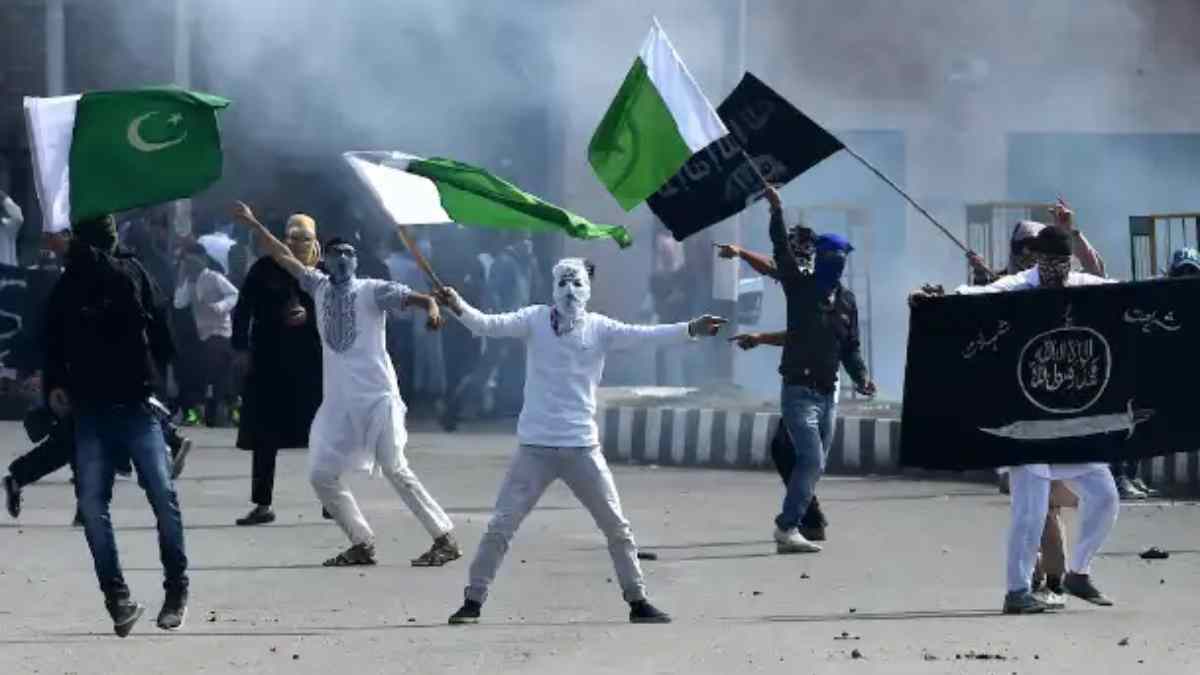At a time when more than 60% of voters have used their franchise in the first phase of the Jammu and Kashmir Assembly Elections 2024, international agencies have warned India of the looming threat of the Islamic State of Iraq and Levant and Al Qaeda. Indian authorities are happy that the people of terrorism-hit areas like Kishtwar and Pulwama have come out in record numbers to vote amid the threat of terrorist attacks. However, the Financial Action Task Force has warned India that the danger of Islamist organisations is looming large over India, particularly the Kashmir Valley.
What Is FATF?
With its Secretariat in Paris, the FATF is an inter-government organization that monitors progress in implementing its recommendations through “peer reviews” (“mutual evaluations”) of member countries. Its main objectives include the effective implementation of legal, regulatory, and operational measures for combating money laundering, terrorist financing, and other threats to the international financial system.
FATF Praises India
Praising India for fighting against money laundering and terror-funding, the FATF has said in its report that in India the main sources of money laundering originate from illegal activities committed within the country. The organisation has also said that India’s largest money laundering risks are related to fraud, including cyber-enabled fraud, corruption, and drug trafficking.
FATF Sets Alarm Bell Ringing
But, the FATF also set the alarm bell ringing in India by saying that New Delhi faces serious terrorism and terrorist financing threats, particularly from the ISIL and Al-Qaeda, who are active in and around Jammu and Kashmir.
ISIS Makes Its Presence Felt
Earlier in May 2024, the National Investigation Agency (NIA) Special Court in New Delhi sentenced five accused, including a Kashmiri couple, for their involvement in a plot by the outlawed Islamic State of Khorasan Province (ISKP) to propagate the ideology of banned outfit ISIS.
The J&K Police arrested a local youth from Budgam for being involved in terrorist activities. The Counter Intelligence Kashmir said Washeer Ahmed Sheikh from Beerwah in Budgam district was in contact with a Pakistan-based handler.
In a separate incident in July, a Village Defence Committee member said that a youth was arrested for being a worker of ISIS. He said further that the terror outfit asked the Kashmiri youth to carry out terror attacks in the valley.
Early Footprints Of ISIS
According to research carried out by a think tank member, the initial signs of IS presence in Kashmir were seen in 2016, when the local youth waved the flag of ISIS on many occasions. However, the experts believed it was a sign of frustration for the youth, though they were not involved in the activities of the terror outfit.
Islamic State Grabs Opportunity
However, IS media channel Al-Qaraar lapped up the opportunity and used the images of Kashmiri youth waving its flag for its Kashmir-centric propaganda and released a document criticising the role of ‘groups with links to Pakistani intelligence agencies’ who, they believed, were fighting for the cause of Kashmiri nationalism, rather than Islam?
The Islamic State also claimed to have carried out two separate assassinations of security officials in 2017 and 2018. However, the political and defence experts believe that the IS claim was wrong and just to seek publicity because it had no infrastructure or cadre to carry out such attacks. It was also not possible because of the presence of the Indian security forces across the Kashmir Valley.
‘Kashmiriyat’ Prevails
The political observers believe the Islamic State failed to woo the Kashmiri youth in large numbers because the entire Kashmir movement and the militancy associated with it is for the right of self-determination, not for Islam. Even for the terror outfits like Jaish-e-Muhammad, Lashkar-e-Taiba or Hizbul Mujahideen, the fight is for a separate homeland, not for the establishment of an Islamist state or caliphate. In other words, it is the struggle between ‘Kashmiriyat; (‘Kashmiriness’) and ‘khilafat’ or caliphate. The Kashmiriyat prevailed and the caliphate failed.













